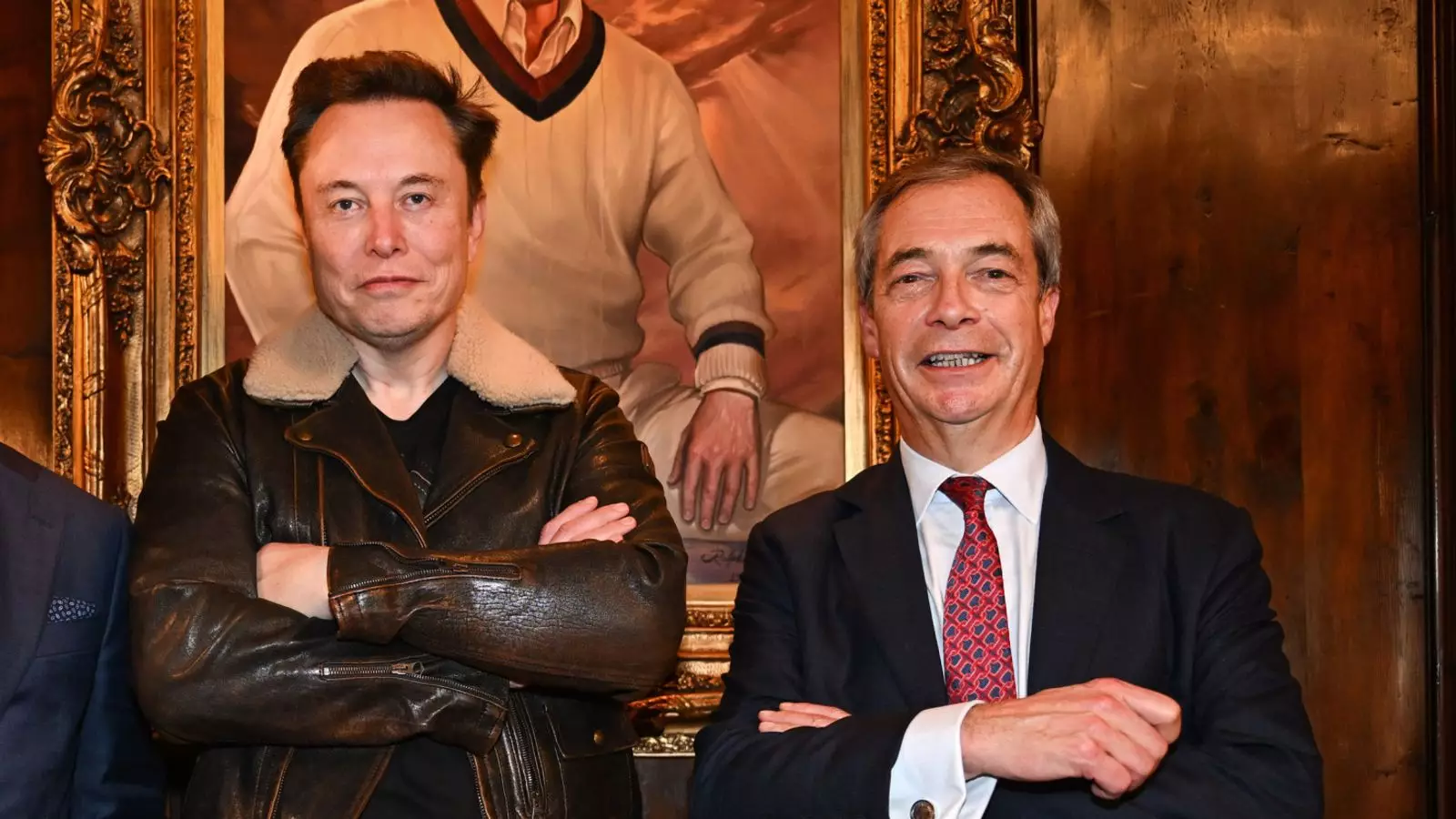Recent discussions among UK ministers hint at a significant shift in the landscape of political financing, particularly concerning the influence of foreign donations on British politics. The proposed reforms aim to restrict foreign entities from funneling obscene amounts of money into UK political parties, often through shell companies that exist merely as conduits for cash. Currently, British laws allow these companies to accept funding without adequate scrutiny, enabling a loophole that potentially jeopardizes the integrity of the nation’s democracy. With an alarming 77% of voters opposing foreign donations, there’s a clear and resonant outcry for reform—the necessity of which cannot be overstated.
The Musk Conundrum: A Catalyst for Change
The spotlight recently turned toward tech mogul Elon Musk, whose rumored intention to donate around $100 million to the political party Reform UK has fueled fears and reactions within government circles. This potential donation could dwarf all other political contributions this year and dramatically influence the electoral landscape. The UK government, understandably jittery about the implications of such foreign money, is hastily pursuing legislative changes that could limit these types of transactions before the upcoming elections. Musk’s actions have unmasked an underlying vulnerability within the British political donation framework—one that could be exploited to undermine electoral integrity.
If successful, these reforms may shield the democratic process from heavy-handed foreign intervention, ensuring that voters’ will is expressed without the shadow of outside influence. Recent polling reflects a decisive public sentiment. Aside from the 77% of voters opposing foreign donations, even among likely supporters of donor-driven parties like Reform UK, a majority (73%) disapprove of such financial infiltration. This discord raises serious questions about who truly represents the interests of the electorate.
A Financial No-Man’s Land
Presently, the murky atmosphere surrounding donations is eerily reminiscent of a financial no-man’s land. As investigations from organizations like Transparency International reveal, significant portions—up to £1 of every £10—of donations received by political parties are either unaccounted for or stem from dubious sources. This scenario isn’t merely a matter of accounting; it underscores a central dilemma facing political systems: when financial contributions come from sources unconnected to the electorate, how can the public trust that elected officials are acting in the interests of their constituents?
Understanding the implications of foreign donations isn’t just about tracking the money; it is about reshaping the relationship between citizens and their chosen representatives. The risk here is not merely financial—it’s existential. When foreign cash flows into regions where it is unregulated, people tend to rightly ask whether their votes possess any real weight against an inflow of speculative monetary power.
Legislative Reform: A Path Forward
The anticipated Elections Bill, which proposes tighter regulations on political funding, could also introduce rigorous checks on unincorporated associations that contribute funds. Such measures, while seemingly bureaucratic, could be revolutionary in re-establishing public trust in a political system that many may perceive as sullied by foreign involvement.
Some critics might argue that these reforms serve to stifle free expression and the right to support political movements financially. However, this perception overlooks the critical necessity of establishing boundaries around funding sources. A system where money can flow unchecked from abroad is not a celebration of free speech; rather, it represents a capitulation of democratic principles.
In mitigating the risks posed by foreign donations, the government aligns itself with its promises to protect democracy and uphold the values of electoral integrity. These changes, if enacted thoughtfully and thoroughly, could serve as a robust answer to the rampant influx of money that threatens to distort the true voice of the British public.
Ultimately, the discourse around foreign donations is less about the money itself and more about who holds the power to shape political discourse in the UK. As the government wades through the proposals for reforms, it must prioritize transparency and safeguarding the democratic process—after all, the stakes have never been higher. It’s time for politicians to demonstrate that integrity is more than just a word; it’s an actionable principle that governs the very essence of democracy.


Leave a Reply